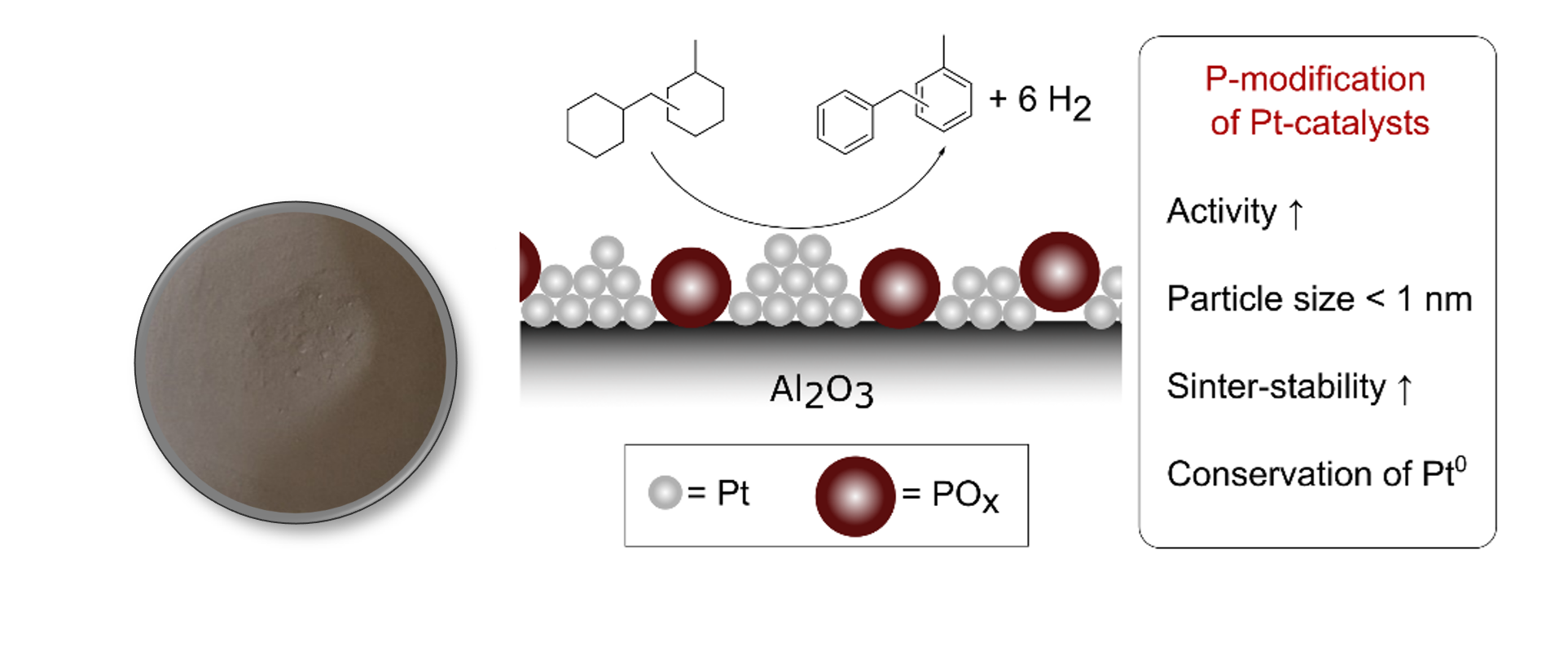Phosphate-modified catalysts for LOHC (de)hydrogenation
Hydrogenation and dehydrogenation reactions will play an important role in the future hydrogen economy, requiring highly active and robust catalytic materials. Phosphorus-modification of supported transition metal catalysts is a powerful tool to tailor catalyst properties such as metal dispersion, activity and selectivity and has shown in the past to have beneficial electronic and steric effects on the catalytic metal.1,2
Modification of alumina-supported Pt-catalysts with phosphorus boosts the activity in the dehydrogenation of cycloalkanes, such as perhydro benzyltoluene. The P-modification can occur via classical impregnation or also via a solvent-free step using an in-situ formed gaseous P-precursor. The phosphorus species on the catalyst surface enhances and stabilizes the Pt-dispersion (up to 900 °C) and exerts an additional electronic effect resulting in enhanced dehydrogenation activities.
Carrying on with the abovementioned work, this concept is advanced towards other catalyst systems. For instance, P-modification of Pd/Al2O3 shows promising results in hydrogenation reactions. In this project we further evaluate the effect of P-modification on the resistance against possible impurities in hydrogenation with impure hydrogen.
The potential of tailoring properties such as dispersion, stability and selectivity makes P-modified supported transition metal catalysts promising materials in the field of (de-)hydrogenation and high temperature applications.

(1) Stöber, R.; Mai, F.; Sebastian, O.; Körner, A.; Hutzler, A.; Schühle, P. A Highly Stable Bimetallic Transition Metal Phosphide Catalyst for Selective Dehydrogenation of N‐ Heptane. ChemCatChem 2022, 14 (18). https://doi.org/10.1002/cctc.202200371.
(2) Ellert, A.; Herold, F.; Rønning, M.; Hutzler, A.; Piccirilli, L.; Janssens, T. V. W.; Vennestrøm, P. N. R.; Wasserscheid, P.; Schühle, P. Phosphorus-Modification of Pt/Al2O3 Catalysts Improves Dispersion and Cycloalkane Dehydrogenation Activity. Journal of Catalysis 2024, 436, 115607. https://doi.org/10.1016/j.jcat.2024.115607.